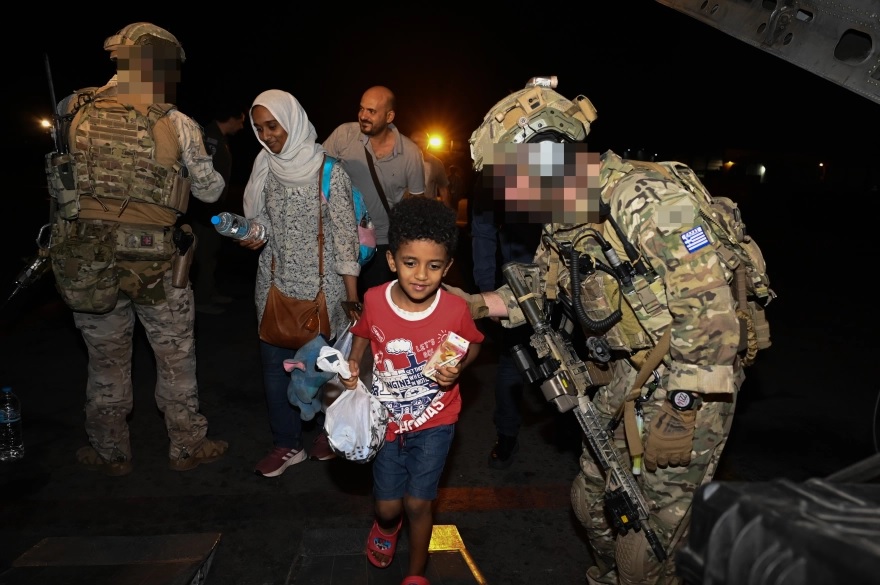A total of 17 people (13 Greeks and 4 other spouses of Greek nationals), including three children and one injured leg surgery who were stranded in Sudan due to the hostilities, left Djibouti yesterday and arrived via Aswan in Egypt at about 10:30 in the 112th Fighter Wing in Elefsina.
Yesterday, the Greek mission, led by the Deputy Minister of National Defense, Nikos Hardalia, landed with a C-27J Spartan transport aircraft of the Air Force at the airport of Djibouti. There, they were welcomed by the Minister of Foreign Affairs and International Cooperation of the Republic of Djibouti, Mahamoud Ali Youssouf, the head of the European Union delegation in Djibouti, Sylvie Tabesse, and the ambassador of Greece in Ethiopia, Anna Farou.
After a very long journey, a total of 17 people who were rescued from Sudan arrived in Greece.
See the photos from Proto Thema.
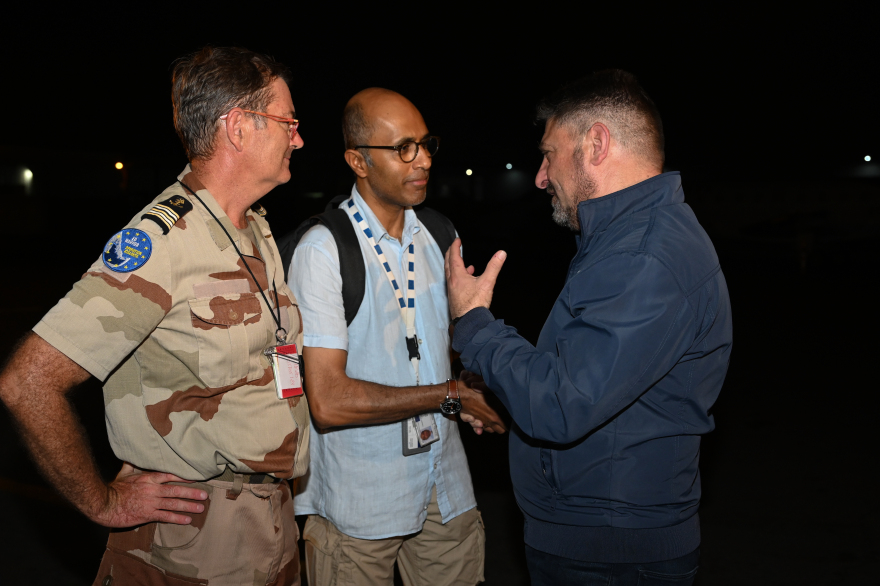
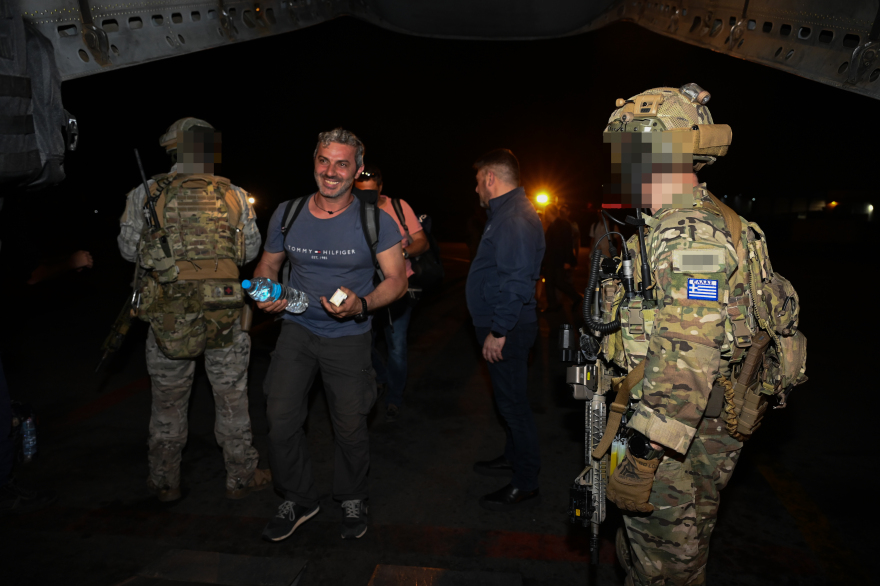
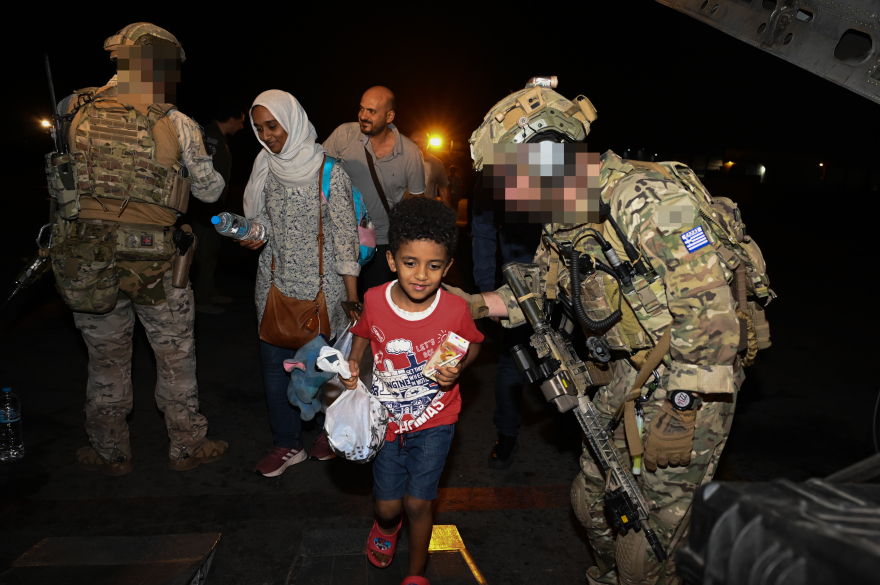
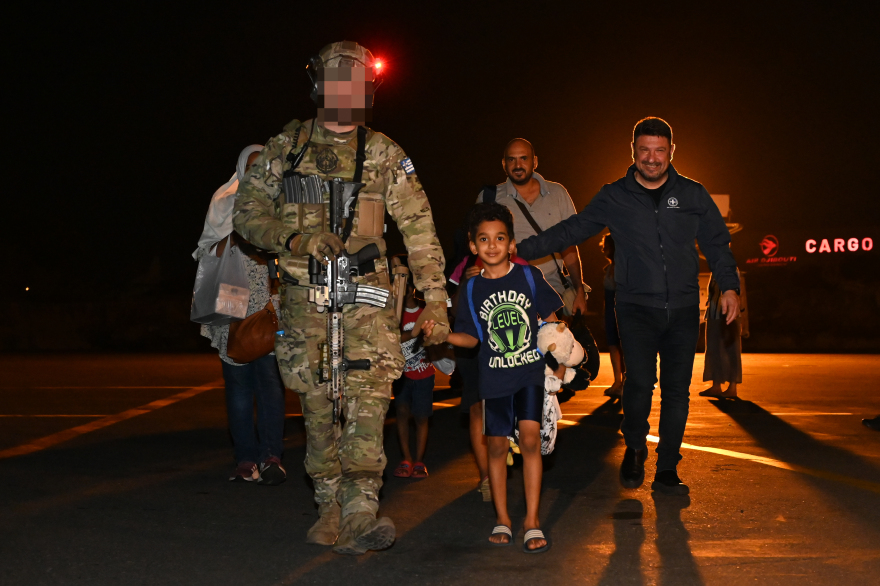
On behalf of the Greek Government, Mr. Hardalias thanked the Government of Djibouti for the undivided care and provision of facilities in every field to the Greeks who arrived from Sudan.
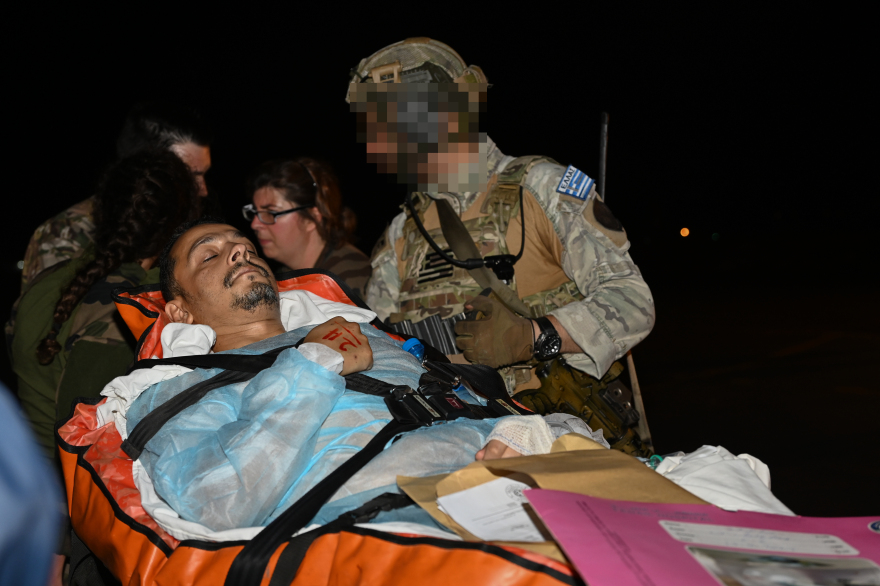
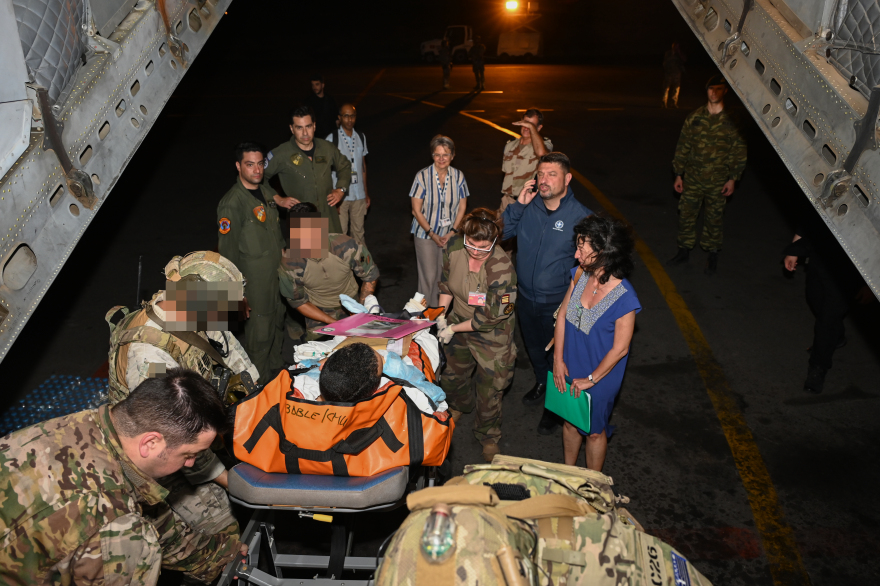
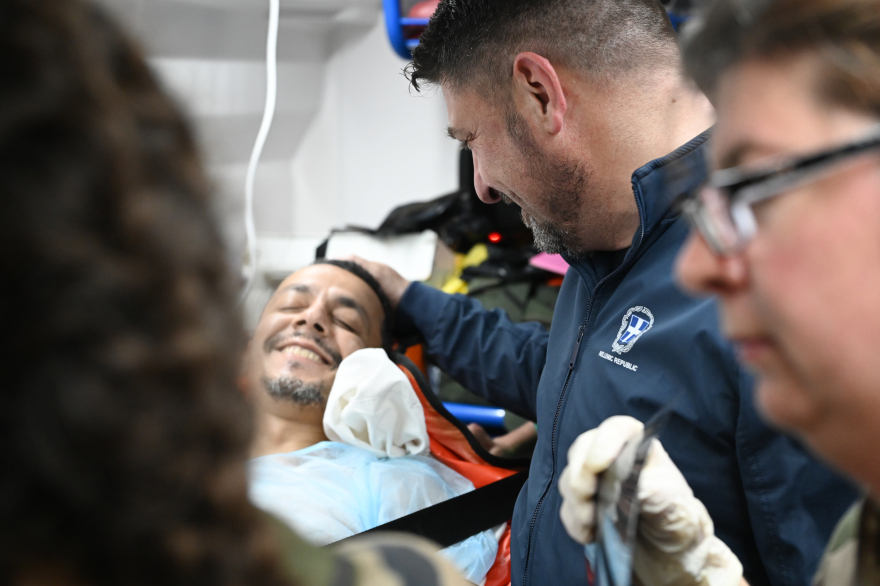
Second operation underway
Also, by order of the Government, a second repatriation mission is underway with a chartered civilian flight (Lifeline) of an intubated Greek wounded man, who was operated on yesterday in a French military hospital.
His condition is considered serious but stable, and he must be operated on again within 48 hours. His son (16-17 years old) will also board the plane.
The Deputy Minister of National Defence, in constant contact with the Operation Center of the Greek Army, remains in Aswan to coordinate and monitor the repatriation operation of the remaining Greeks.
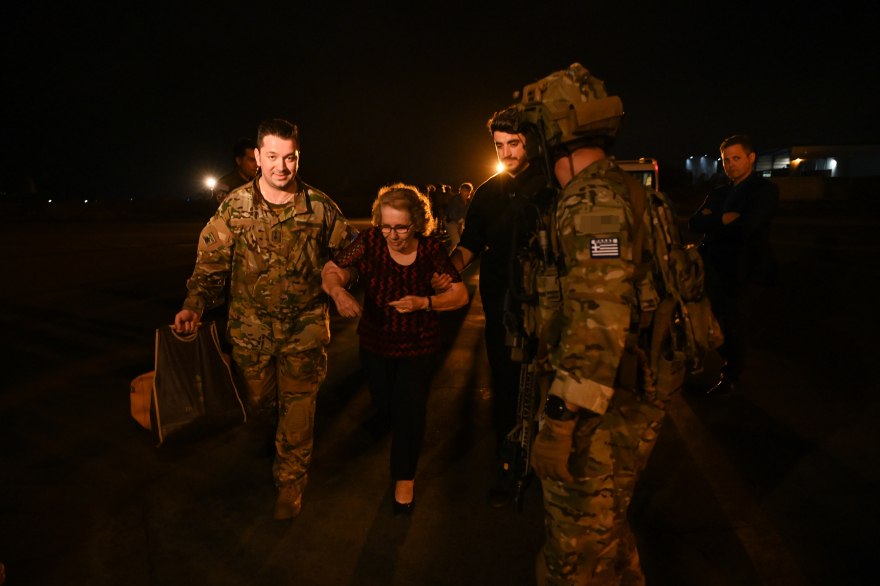
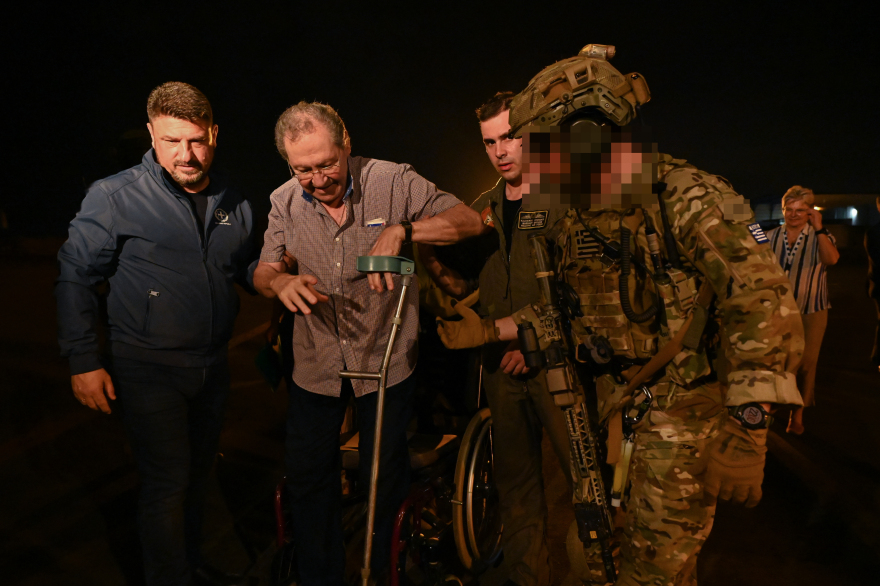
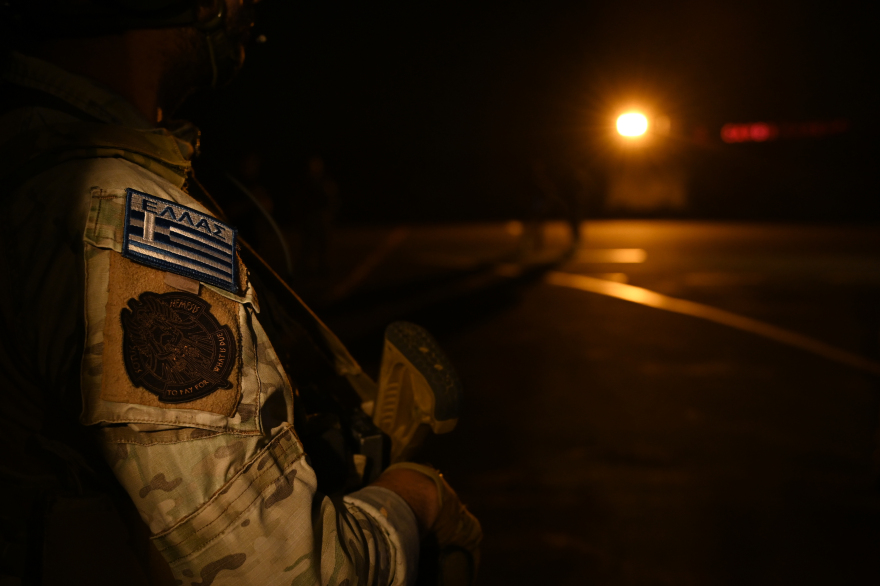
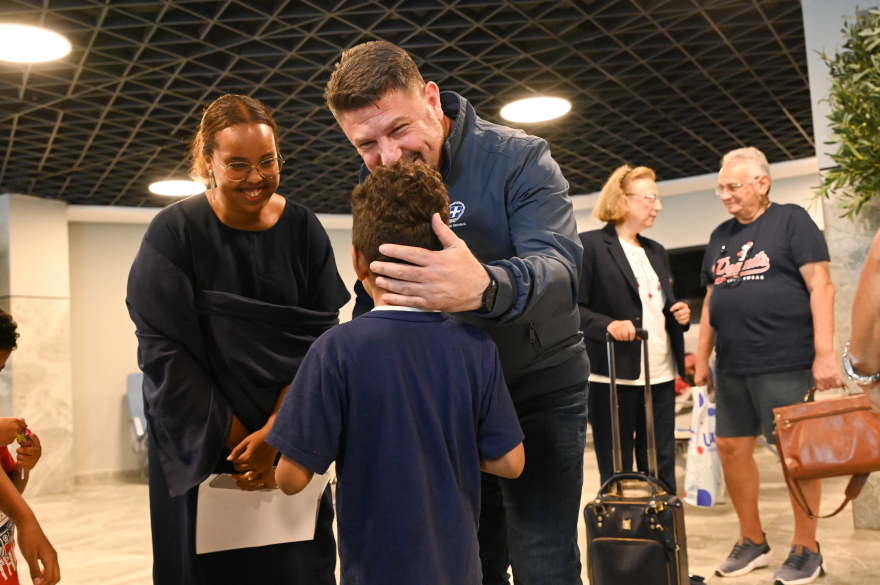
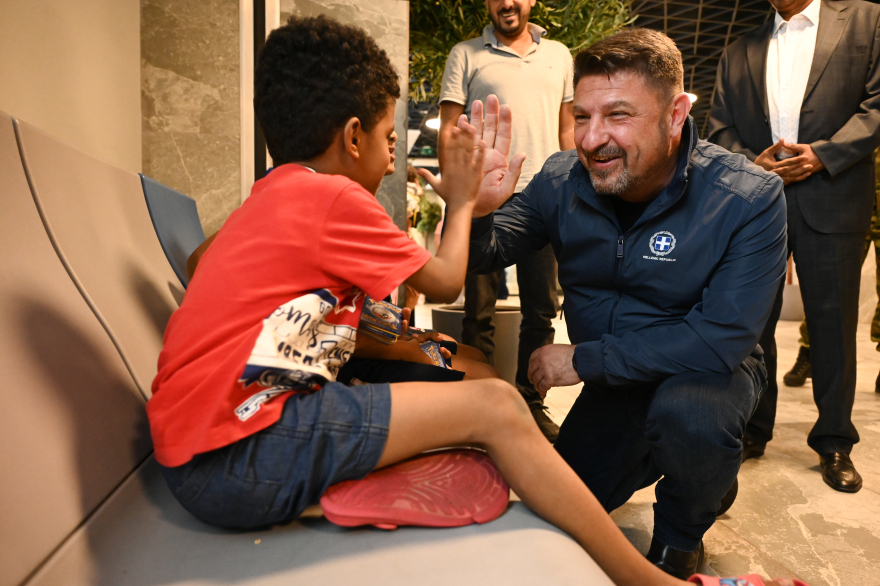
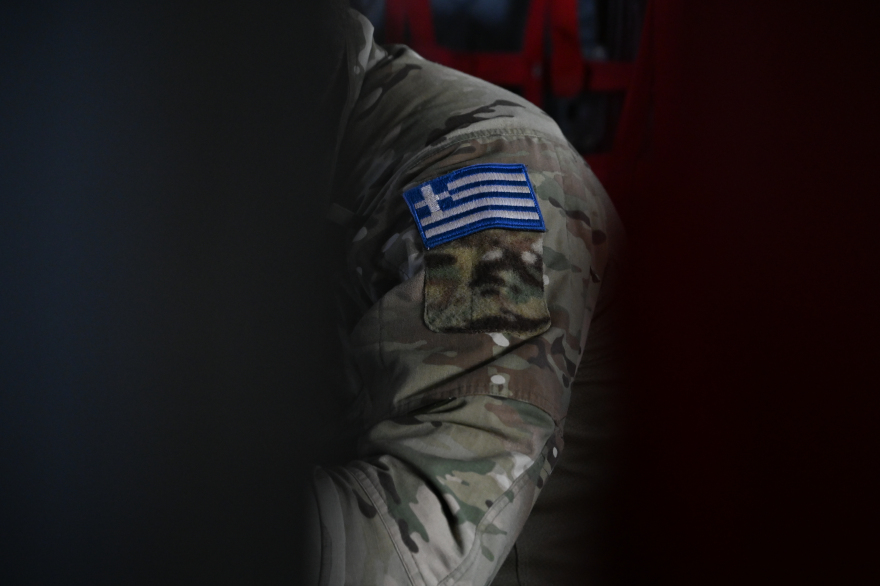
A ceasefire in Sudan appears to be holding after taking effect at midnight (22:00 GMT on Monday).
It is the fourth attempt to stop the fighting which began on 15 April, with previous truces not observed.
US Secretary of State Antony Blinken said the 72-hour truce had been agreed between the army and the paramilitary Rapid Support Forces (RSF) after 48 hours of negotiations.
At least 400 people have been killed in the hostilities.
Both sides in the conflict independently announced their involvement in the ceasefire.
UN Secretary General António Guterres has warned the violence in Sudan risks causing a "catastrophic conflagration" that could engulf the whole region and beyond.
Since the violence began, residents of the battle-scarred capital Khartoum have been told to stay inside, and food and water supplies have been running low.
The bombing has hit key infrastructure, like water pipes, meaning that some people have been forced to drink from the River Nile.
There will be hopes the ceasefire will allow civilians to leave the city. Foreign governments will also hope it will allow for continued evacuations out of the country.
Countries have scrambled to evacuate their diplomats and civilians as fighting raged in central, densely populated parts of the capital.
Sudan suffered an "internet blackout" on Sunday amid the fighting, but connectivity has since been partially restored according to monitoring group NetBlocks.
It is estimated that tens of thousands of people, including Sudanese citizens and those from neighbouring countries, have fled because of the unrest.
Hassan Ibrahim, 91, was among them. The retired physician lives near the main airport in Khartoum, where some of the worst fighting has taken place, but has since made the perilous journey into neighbouring Egypt with his family.
He told the BBC World Service's Newshour programme they had escaped being caught up in a firefight between RSF fighters and the army but that a van travelling behind them had got hit. The family then boarded a bus to the border, which took 12 hours, only for them to be met by "crowded and chaotic" scenes as people waited to be given entry.
"There were so many families with elderly passengers, children and babies," said Mr Ibrahim. "The Sudanese are fleeing the country - it is a sad reality."
READ MORE: VOLOS: Father sentenced to three years for beating his daughter after she converted to Islam.

